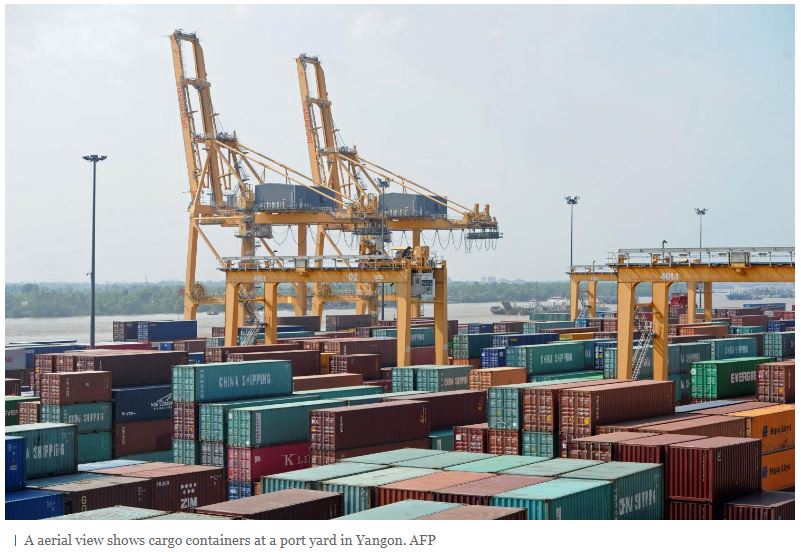Shippers shrug at Myanmar loan rule
The Central Bank of Myanmar’s order for companies and individual borrowers to suspend repayment of foreign loans, the latest in a series of steps to shore up the nation’s dwindling foreign exchange reserves, is unlikely to have a significant impact on Thai exports, says the Thai National Shippers’ Council (TNSC).
According to Chaichan Chareonsuk, chairman of the TNSC, Thai exports to Myanmar represented only 1.6% of Thailand’s total exports or US$4.3 billion last year, meaning the impact of Myanmar’s foreign loan repayment measure should be minor.
Key export products were mainly finished oil, beverages, chemicals, plastic pellets, steel products, cosmetics, soap and skincare products.
According to Mr Chaichan, Myanmar’s measure is also unlikely to affect border trade as transactions are mostly handled in cash before product delivery.
“What is of greater concern right now is Myanmar’s strict import policy applied for the last 10 years, as it causes inconvenience in exporting goods to the country,” he said.
Mr Chaichan said the TNSC remains confident Thai exports can record a 10% gain this year, driven by the baht’s weakness and China’s anticipated uptick in GDP growth.
Aat Pisanwanich, director of the Center for International Trade Studies at the University of the Thai Chamber of Commerce, said Myanmar’s government is focusing only on loan repayment in US dollar terms, noting the purchases of necessary goods, food and daily use products are still allowed to be settled in US dollars.
“The impact on Thai exports is likely minimal, as Thai shipments to Myanmar have increased over the past five months,” he said.
“Myanmar’s imports are mainly necessary products, including finished oil and products for daily use. However, from now on new Thai investments in Myanmar are unlikely.”
In the first five months this year, Thailand’s exports to Myanmar rose by 21.1% to $2.07 billion, while imports increased by 22.6% to $1.51 billion.
In 2021, Thailand’s exports to Myanmar tallied $4.31 billion, a rise of 13.7% from a year earlier.
Sanan Angubolkul, chairman of the Thai Chamber of Commerce, warned that companies earning revenues in foreign currencies are likely to see the biggest impact. Myanmar’s debt repayment suspension scheme will definitely affect their cash flow and funding to acquire imported raw materials to produce finished products in the country, he said.
Source: https://www.bangkokpost.com/business/2350244/shippers-shrug-at-myanmar-loan-rule


 English
English




